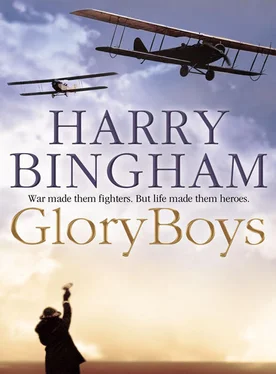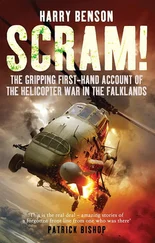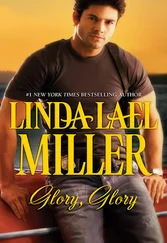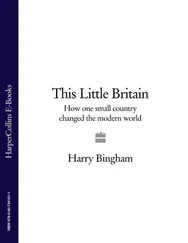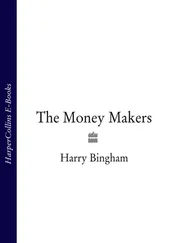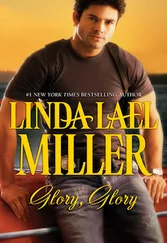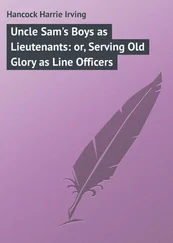By the time Abe set Poll down in Miami, Mason was half blue with cold, his hands shaking, his face pinched and tight.
‘You have to fly her as high as that?’
‘Nope.’
‘Then why the hell did you?’
‘I run a business, but it’s not a passenger business. Next time take the boat.’
Mason left, heading off towards town, flexing his fingers to get them warm.
Abe watched him go. It was his first serious contact with the gangsters of Marion. But it wasn’t too late to quit. He was committed to nothing, he had promised less. Few people knew where he was, and no one knew what he was doing. Abe stood watching, ’til Mason had long passed out of sight. But the hesitation that had gripped him since the moment when a lanky storekeeper in Independence had asked him for help still gnawed inside. Should he fight or quit, stay or run?
He didn’t know. He still hadn’t made up his mind.
One Friday afternoon, Willard had had business with the bank’s archive on the twentieth floor. He’d deposited one file, collected another and was just about to leave, when he happened to see Leo McVeigh and Charlie Hughes through the glass-paned door. McVeigh had Hughes pushed up against the wall. Hughes was white, obviously terrified. McVeigh was standing too close, speaking intently, his big hands half-curled into fists.
Willard stared for a second, then banged the door open. McVeigh stepped back. Charlie Hughes put his hand to his face, checked his tie, began muttering nervous hellos. Willard already loathed McVeigh and was angry enough to welcome a confrontation.
‘Hello, McVeigh,’ he said icily, before turning to Hughes. ‘You all right, old chap? You’re looking rather blue.’
‘I’m fine, honestly, Will, please don’t worry.’
‘I do worry. You’re not looking at all well.’
‘Spot of tummy trouble. Maybe something I ate. I’ll be OK.’
‘Have you drunk some water?’
‘Water?’ Hughes repeated the word as though unfamiliar with the substance.
‘Water. You ought to drink something. Maybe go home and lie down.’
Hughes caught McVeigh with his eyes. He’s asking that bastard for permission , thought Willard angrily. McVeigh nodded slightly and stepped away.
‘Yes, good idea,’ said Hughes. ‘I’ll drink something. That should help.’
He made no move to come with Willard, as though still spellbound by McVeigh’s presence. The big one-time football player stood a pace or two back, kneading his hands and breathing silently through his mouth.
‘Good. I’ll walk you to the bathroom,’ said Willard firmly. He put a hand on Hughes’ shoulder and steered him away. In a deliberately loud voice – loud enough that McVeigh would be sure to hear it – he said, ‘You always feel free to come to me if you need help, anything at all.’
‘Yes, of course, thanks, Will-o.’
Feeling distaste for the man he’d just rescued, Willard turned and stared McVeigh straight in the face. For a second or two, their gazes locked. Hostility flickered in the air. Then Willard, pulling some of his Hollywood moves, curled his lip, turned on his heel, and stalked off.
Speaking about it later with Larry Ronson, Willard said, ‘I’d swear he was threatening Hughes. The poor chap looked white as a sheet.’
Ronson was sympathetic. ‘He’s an ugly sort, McVeigh. He’s never even attempted to join in with things. I mean, at least Hughes tries .’
‘Yes… Look, you probably think I’m being absurd, but you don’t think … Look, I don’t even know what I think, but have you ever wondered if there’s anything strange going on at times? You remember that business with the Orthodox Synagogues?’
‘Irish rabbis. That’d be something.’
‘McVeigh threatened me in the elevator. Told me not to ask questions.’
‘He did? He did that? Jesus! Have you told anyone else?’
‘No. I’m not quite sure who I would tell.’
‘There’s Grainger, I suppose. Or Barker.’
‘Yes, but what if they’re in on it too?’
‘In on what?’
‘I’ve no idea. None at all.’
‘Look, you know Powell a little, don’t you? Or at least your pa does?’
‘Father and Powell are Yacht Club buddies, that sort of thing. Trouble is, I don’t really know the man and, in any event, I wouldn’t know what to say.’
Ronson looked at his watch. It was four thirty-five. ‘I trust you’re intending to keep New York’s bootlegging community in proper employment tonight?’
‘Love to, but I’m bursting to get out of the city, to tell the truth. Take a weekend in the country.’
‘The delights of Martha’s Vineyard, eh? Lucky dog.’
Willard smiled. His father owned a thumping big estate facing south over the ocean. What was more, Willard’s four sisters were all going to be there this weekend, with girlfriends in tow. Willard had enjoyed happy hunting with his sisters’ friends in the past, and could think of nothing more welcome in the present. Willard stared at his desk and its cargo of detested manila files.
‘To hell with it,’ he said, feelingly. ‘To hell with everything. If Messrs Grainger, Barker, McVeigh or Powell want me, please tell them to go to hell too.’
Grabbing coat, hat and briefcase, Willard strode for the door.
The shop was dim compared with the street outside, but then again since the street outside was a blaze of white dust and air so hot it practically buckled, dim wasn’t a bad way to be.
The kid kicked around at the back of the store, waiting while Hennessey finished serving an old lady customer at the front. The kid was down in the hardware section, fingering the metal pans full of nails, weighing the hammerheads and axe handles. The old lady left the shop. Lundmark approached.
‘Afternoon, Mr Hennessey.’
‘Hey, Brad. Fancy some candy?’
The storekeeper pulled a jar of Brad’s favourite candy from the shelf behind him. The kid looked embarrassed, sticking his hands in his pockets.
‘Oh, gee, no, it’s OK, I didn’t mean to – I didn’t come out with any –’
‘This candy’s a treat between friends. I didn’t mean for you to pay.’
‘Oh, gosh, Mr Hennessey, thanks.’
The old man and the young one went silent as they chewed on the pink and white candy. Brad was still of school age and his mom’s blind eyes didn’t let her earn a living. The two of them lived off the town’s charity and the poorer the town got, the poorer the Lundmarks became.
‘Good candy.’
‘Yeah.’
Hennessey could tell the boy wanted to ask something, but wasn’t sure about doing so. The older man let him take his time. Another customer came in, asked for a bolt of cloth, was told it hadn’t come in yet. The customer left.
‘Say,’ said Brad, who had plucked up his courage, ‘I keep telling Mom it’s time she let me earn a little money. Schooling don’t bother me none, only it don’t pay nothing either.’
‘That’s a problem with it,’ said Hennessey, hoping the boy wasn’t going to ask him for a position.
‘She thinks I ought to become a carpenter like my pa.’
‘He was good with his hands, your pa.’
‘Yeah…’
‘And sometimes you know those things run in the blood.’
‘Yeah…’
‘Only if I’m guessing right, you don’t fancy the carpenting line of work over much.’
‘Not so much.’
Hennessey was more sure now that the boy was going to ask for a job – a request which Hennessey would absolutely have to refuse – and his manner stiffened as he waited.
‘But I reckon you’re right about them things running in the blood, though.’
‘Yes?’
Читать дальше
